I spent most of my waking life during the mid 2000’s in a cavernous, linoleum-floored stockroom spanning half a city block five stories above Michigan Avenue in Chicago. Racks and racks of clothing stacked three levels high were packed so densely they sucked up most of the flickering fluorescent wattage and had me squinting more often than not as I hung garments on huge, re-barred walls. You could scream all you wanted in there during a brief 15 or 20 minute break and it was easy for colleagues to shut it out, muffled as we were by foot deep cushioning of rayon, poly, and cotton blend fabrics, the building blocks of an unholy nutrition pyramid that fed the fast fashion corporate giant for whom I toiled. The $14/hr I made styling mannequins was, for me, an enormous upgrade in pay thanks to my elevation from indoor visual to window visual - the cream of the crop when it came to liberal arts college refugees looking to parlay our innate ability to make things pretty into adult careers capable of supporting the lifespan of one American human. Having been convinced of my own upward trajectory via my meager pay raise, I was working extra diligently on my ‘pick wall’, which was really just one of the many rail walls stuffed to capacity with garments that we, the window stylists, would use to switch outfit possibilities for displays that changed every two weeks. We would keep everything on hangers and set up tops above bottoms as a way to see potential wardrobe choices, like the pages of vintage paper doll booklets. The company didn’t see the need for us to have a dedicated space for this, despite my team of three being responsible for 80 - 100 mannequin changes, so we would tuck ourselves away like mice in the attic and balance the chrome hanger tips on wadded clumps of socks, blouses, or often the metal bars of the storage structure itself. The result was a series of fabulous looks perched like crows on a telephone wire, light knits and chiffon skirts gyrating and tilting in various directions depending on how high the industrial vents were turned up that day. They could alternate positions or fly away entirely at any given moment, particularly if our boss came in and decided we should re-do our work.
I remember having trouble nailing a dozen full outfits of equal impact, despite starting strong with a retro, French-inspired mannequin, the one we referred to as ‘The Star’ of any particular window set. It was an important display component at the time to have The Star - a look that was so on trend, so appealing, that the corporate honchos felt it would convert every single passerby to a customer. The Star had to be surrounded by a supporting cast of mannequins who were very, very close in elegance, but who may lack a few of the key details like jewelry or patterned tights. These forms still needed to be impressive, but we could be a little more shrewd dressing them and pick only one or two trend features to highlight. The Star, though, had to be perfect. The Star had to be an iconic representation of both the company and the main fashion trend of the season. She had to look rich. She had to shine.
My Star had a blush-colored cardigan over a sheer black blouse with a drapey, ‘pussy bow’ neckline. She had bangles, fishnets, and a swishy mini-skirt adorned with a muted gray/black microprint because the entire facade theme for this window change was blush, blacks, grays, and girly little accessories that Americans think make people look French. She was so good that the country stylist had swanned by and said “That is exactly the trend. Exactly. Fabulous. Who did this?”
If you’ve never worked in fashion, know that “Who did this?” is one of the most common reactions to employee work by important higher ups. My life in this field has trained me to expect someone in 5 inch heels to round a corner anytime I complete any degree of styling, look my work up and down, then turn and look me up and down, before haughtily snarling, “Who did this?”
To be clear, “Who did this?” can mean that your boss is impressed. It can also mean your boss is appalled. Part of the fun for them must be holding back on which it is while you step meekly forward and squeak, “Um, I…I did?,” after they boom out their favorite phrase.
Despite the early approval by a country level yahoo, I couldn’t get the other outfits to work - they either underwhelmed, or they looked like they waltzed in from an entirely different runway show. Some would benefit from an accessory, but I already used bangles and the goal was always to show as many different accessory options within one mannequin group as possible. All my necklace picks were too dainty to have impact, hats made them look costumey, and there weren’t enough cool prints to make the supporting cast outfits pop as well as The Star outfit did.
I was starting to sweat, and the further I delayed getting all 12 outfits approved, the more likely it seemed another task would not get done and I would be written up. We worked under tight timeframes in order to churn out four floors of new windows on a non-negotiable schedule, like clockwork. I was biting my nails and pacing and moving hangers from one precarious position to the next when my more immediate boss and mentor walked in to check on our progress. Like the rest of us, he had imbibed only Starbucks and Adderall in the previous eight hours and was in the process of chewing his bottom lip entirely off of his manicured face while he flitted over each outfit and hummed at a detail or two. Eventually he backed up and looked at the whole line-up with me, then pointed at The Star.
“What if you take her apart, give her bangles to the girl with the off shoulder sweater, and put the blouse under that one in the blazer?”
My reticence was probably palpable when I looked at him. That one outfit was the only thing I had done that garnered praise by the country team, praise I was desperate to repeat given the newness of my promotion and my growing need for living space that contained more furnishing than the ancient van seat I stole in college and my cat’s litter box. Maybe even, I dunno, a bed.
“But she’s the best one,” I said. “She’s The Star.”
He waited and looked over the outfits again, his lip succumbing almost completely to the dull squares of his teeth. When he asked me if The Star was the first outfit I assembled, I sighed and nodded, clenching my jaw in preparation for his directive. He grinned at me, not unsympathetically, and simply said, “You’re going to have to kill your darling.”
When I opened my mouth to object, he continued, “She is good, I agree, but honestly - if you take her apart and give everybody else one of the elements, I think this will be stronger. We only have four more hours to pick and steam. Someone else can be The Star but with a better supporting cast.”
I looked solemnly over my work, not saying anything. The vents kicked on and garments ruffled and settled their man-made feathers. My boss looked at me expectantly.
“Would you rather scrap her? Or the whole window?”
I remember resisting for another hour or so before I pulled my Star away and did what he suggested. With my accessories spread out and a few more prints, it was a better runway and most of the looks made the final cut…but not my Star, who had been disarticulated and gifted to other mannequins in pieces, like an heirloom for combative relatives at a funeral. I took it too personally and I did what I always do, spent hours after the fact beating myself into a pulp for not being savvy enough or talented enough to get the original vision to the finish line, for not wowing my boss so thoroughly that he exclaimed everything was perfect and I should immediately start changing the window. It was not the first time I had to dissolve something I believed in, and it wouldn’t be the last. But he was right, in the end.
My business partner and I threw caution to the wind and opened a Seattle boutique we named Ritual after spending decades honing processes and making lots of money for other people, both separately and together. The system we had perfected under big retailers meant we knew how to run massive retail stores the way CEO’s demand they run - like clockwork. I was the creative, and he was the operator. We had finally grown so tired of the politics and the constant directives to achieve more with less that even the specter of public failure was a cool splash of relief, because this failure would be our own, as opposed to the frustrating impotence we felt working for faceless board members, hamstrung by wacky budgets that originated on a separate continent. We thought that if we were in control of everything, we would own our results in a way that wasn’t possible in the bureaucratic maze of an international corporation. We weren’t terribly wealthy, but we were talented and righteously committed to overworking, both important factors in the American myth of success via bootstrapping, and by Gods we were ready to bootstrap. We wanted to have a place in Seattle that sold things we liked for a change, and that catered very specifically to our lifestyle, which essentially amounted to cynical, elder Millennial goths with corporate jobs who dabble in the occult on the weekends.
We were willing to do anything and sell anything the first year we opened, knowing it would take at least that long to develop a customer base. We worked everyday, switching off mornings and nights, lengthening hours when we thought it would help and brainstorming ideas in the back of house, in bars, and in airports. We were still tight then, he and I, not yet ground down to nubs of anxiety and resentment, worrying our cuticles and narrowing our eyes at each other over a dwindling bank account. By the beginning of the second year we gained enough customer traction to feel good about ourselves and to start imagining an optimistic future. We had regular customers we knew and liked, weirdos like us who remembered ‘old Seattle’ and who wanted to look just as dour and witchy at the office as they did outside of it. We were anticipating a dynamic second year in business, having just returned from a buying trip that I felt particularly good about. One day, riding a witchy high, my partner and I re-enacted the entire final dance number from the Suspiria remake on our sales floor. He successfully imitated almost all of Dakota Johnson’s choreography before the next customer opened the door, spooking us and forcing him to scramble up off of the carpet. Holiday lights still twinkled in the dusk outside our giant glass façade as we schmoozed with black clad regulars for an evening art show in February of 2020. The conversations were mostly celebratory and esoteric, but little spots of uncertainty bubbled up in between sips of wine; unsettling news was coming out of China and heading straight for Seattle about a new infectious disease that might, possibly, be killing people.
The full impact of the Covid-19 pandemic is probably decades away from being internalized, but anybody working in the service industry had a front row seat to a movie we all made wherein the decay of the social contract, previously set to a steady, glacial pace, sped up like one of those time lapse science films where flora and fauna rot at a record pace. My initial worries about the whole thing were shamefully pedantic. Of course, I thought. Of course, once I finally moved on from 15 years of corporate bullshit and strike out on my own, the fucking world had to go and implode. My initial fears were strictly confined to Ritual losing momentum and people not shopping, a quaint little concern that would soon be buried under far darker existential dread.
My grandfather in Florida died first, during the portion of lockdown when people still pretended to care, clapping in unison at set times in the evenings. One of the women with whom I taught yoga died next, just as the business community backlash against public health measures was gaining traction and conspiracy theories began proliferating in earnest. Soon, the government decided we had to get back to business, public health be damned. Mask wars began eating up all of America’s oxygen, and service workers were deemed ‘too essential’ to keep home, unlike the droves of white collar flowers who sequestered themselves inside with the blessing of the ruling class. We had to stay behind the counter of the dimmed bars and restaurants, or keep our expendable asses planted in Uber-stickered cars that would provide a tenuous sense of normalcy to people who exceeded our take home pay by astronomical percentages. Malls in many states had already reopened, sans restrictions, when my best friend of over 20 years told me that she and her dad both got Covid. Within weeks, her father George succumbed and died in Arizona, a few months after she had been forced back to her retail job. I knew when my phone rang at 4:30am one morning that nothing good was on the other end, and the long, primal wail telegraphed into my dark bedroom confirmed it. The only words she choked out over and over were, “MY DAD, MY DAD, MY DAD.” I stayed on the phone with her while she fell apart in a hospital parking lot and they shut off the machines keeping her father alive somewhere inside. Only her mother was allowed in the room, and only behind glass, watching impotently as the person she spent her life with for the past 40 some years stopped breathing for good. According to many politicians, pundits, and their loyal fan clubs, this was a necessary sacrifice to the hungriest of gods, capital.
It was around that time that shadows began to nibble at the edges of my brain, little whispers asking what I was doing with my life. George was a man I greatly admired - he had raised two kids to be successful, interesting adults, served his country with a stint in the military, and cultivated a flexible, curious mind that defied American trends when he became more progressive and radical in his old age instead of succumbing to the intractable conservatism of the stereotypical baby boomer. When our society collectively decided that people like George were worth nothing, many of the rest of us began looking ahead to our futures with skepticism and comparing our own perceived low value to our exhaustingly high output. If an individual’s passion and work is worthless, regardless of effort or virtue, then what’s the point? Why was the economy, a system of value and paper exchange invented by humans, something we had to die for? If our systems are supposed to serve us, shouldn’t it have been the other way around?
Once the economy that everyone decided was more important than human life came roaring back, so too did the cruise tourists, weekenders, and office workers. It’s quite something to see people loaded with shopping bags, lazily gesturing with a hand clutching $8 bubble tea as they step over a sore-covered human on the sidewalk to enter your store. It’s also quite something to wait at such a person’s beck and call, throwing their beverage out for them when they get bored of it, running back and forth to their well-lit fitting room with new sizes and any other absurd shit that catches their fancy, apologizing profusely when you don’t have an exact size that magically fits their specific measurements, and thanking them for the opportunity so that they will maybe part with some of their obscene disposable income… all while someone else calls the police about the human who may or may not be dead 8 feet away. I cannot lay claim to any sort of innate goodness, as I obviously started a business that would peripherally cater to exactly the sort of person I am describing. My main goal, though, had always been to create a staple for the subculture - a genderless, avant-garde part of the community landscape where weird humans could buy weird clothes without having to wander around under fluorescent lights and overhead signs declaring WOMEN’S or MEN’S in commanding fonts, as though gender delineation were as necessary as drawing sovereign international boundaries. (I always feel like I’m going to be stopped and redirected when I’m under such aggressive signage. Like a uniformed figure will emerge from the shadows as soon as I step into the menswear department and shout, “Achtung! Vagina!”)
Many of my subculture brethren are like me, however - working class and living paycheck to paycheck. So the big spenders, the merchant class, and the wealthy tourists are people to whom capitalism demands we kowtow under pain of complete bankruptcy and failure. I’m sure I was at least peripherally aware of this in 2018, when I and the bulk of the world swam right along a momentous tide of hustle culture, rise and grind horseshit that hits differently 3 years and one million lives later. Knowing, intellectually, that your government and community think you are worthless and should die is not nearly as impactful as having them prove it to your face in real time.
By winter of 2021 Ritual was operating with the help of a sizable government loan and the staunch support of our few customers, but the pandemic-shaped cracks in my personal foundation began to manifest more overtly and frighteningly. I drank constantly, often throughout the workday. I couldn’t sleep through the night and I couldn’t eat. Often, I ducked in back, in between customers, to sob uncontrollably. The cognitive dissonance required to focus more on my bottom line than anything else, more than dead people, more than the poor souls weeping and shoeless on the street, and more than my neighbors losing homes, and partners, and jobs had been completely obliterated. I could no longer separate collective death and misery from my own actions of the past or present. It felt like waking up in a big, beautiful house with thick, dramatic black velvet curtains that you never really looked behind until the day the curtain rod broke and fell down, revealing the machinery of an abattoir. Now that I knew it was there, I couldn’t unknow it. Instead of ceasing the butchery and cleaning the offal off our boots, the inhabitants of this country just popped the curtains right back up and decided to keep living, working, and consuming, humming occasionally to cover the sounds of violence. New, wet bodies stacked in the dark like an assembly line. Like clockwork.
When the lease on the building housing Ritual came up for renewal, I agonized. Running this business, I have come to know many amazing people who consistently supported us over the past 5 years, and I knew that reactions would justifiably range from mild disappointment to legitimate distress. For some of our customers, closing Ritual eliminates one of the only places they can shop without fear or judgment, and for that I am deeply sorry. Unfortunately, the business standards of American capitalism ensure that future Ritual would inevitably transform into something more disappointing than non-existence. For my part, dismantling a dream on a high note feels a little better than pushing it to the point of a desperate future wherein we are thinned out to a ghost of ourselves by market forces and creative dissolution. Had I stayed on a lease from 2023 through 2028, I would have had to execute changes that I truly, in good conscience, could not enact. First, I would have to hike prices in order to keep up with all the manipulated inflation from my vendors and designers (and it is, make no mistake, a manipulation on the part of the massively wealthy). One of the economic injustices that draws far less publicity than it should is the fact that, through massive rent hikes and coordinated price gouging, property owners are really the people who set pricing in all of the little shops you see lining the streets of any city. Most of these property owners hoard several commercial and residential leases, so not only are we making them wealthier by paying exorbitant amounts of our income to have a roof over our heads, but we are making the same people wealthy every time we buy goods from a store that leases from the exact same owner. It bears repeating; the same person getting wealthy off of our desperate need for shelter is also getting what is left of our money whenever we assuage our miserable lives with the endorphins of consumption, lives made miserable in large part by the very same property owner.
Second, I would have to steer the brand toward a less unique, more middling and broadly appealing vision as a means of capitalizing on wealthier customers who tend to come in from outside the neighborhood. There is a reason that brands often start out with startling and original aesthetics and morph over time into more bland, accessible versions of themselves as they grow financially - it increases business. This common strategy is the reason 2023 All Saints looks like a shadow of 2012 All Saints, and the Urban Outfitters of 1990 was a very different looking brand than the Urban Outfitters of 2023. Constant growth demands constant recalibration, usually to the tune of appealing less narrowly, and more broadly. This means that, given enough time, Ritual would be selling lower quality clothing at a higher price, and would traffic more in beanies, ironic vintage t-shirts, twee pins, and selvage denim, instead of bat-like, Moira Rose-inspired caftans, because those are the accepted strategies for checking the Keynesian boxes of capital expansion.
In addition to aesthetic and economic compromises, a myriad of other practical considerations plagued my mind. The environmental impact of shipping goods in plastic and cardboard only to ship them out again, and the enormous amount of waste I was generating while our planet literally burns was a hugely decisive factor. So was the increasing likelihood that our building, as well as many of the old buildings in Capitol Hill, will be virtually uninhabitable soon due to antique construction meant to trap heat instead of release it, a harbinger for catastrophe amidst Seattle’s increasingly common heatwaves (Anybody who thinks the property owners are going to remodel for such conditions hasn’t been paying attention - they do not own these buildings to improve them. They own them in order to suck as much capital out of the population as possible). But my practical fears about remaining open were fractional compared to my gnawing spiritual qualms, which deepened every time another memento mori made its way to my altar.
My next friend died in the summer of 2021, not by Covid but by traditional American racism and atavism. We did yoga together and had a shared camaraderie through years of the service industry. She worked at a liquor store on 12th Ave. and would hang out in my store after her shifts, commiserating on my couch. Black, epileptic, and uninsured, she was felled by a seizure that could easily have been controlled with medication and died in bed, in the middle of the night. I found out she was dead from Instagram and made it to a ramshackle wake at Cafe Racer with minutes to spare, where I numbly offered condolences from behind a KN-95 mask.
By the fall of 2021 it was my own father behind another bleak and distant communique. He was an abusive drunk and our relationship was fraught, but it was hard not to feel like the black hole that had hovered around me my whole life was finally, inexorably closing in. They found him dead and alone in his crappy little apartment in Detroit. They couldn’t tell me if it was Covid or something else, due to advanced decomposition, and I doubt anyone else put too much thought into it while they zipped him up into a bag and cleaned the apartment for the next low-income nobody to die in. We fill the economic coffers with new bodies simply so they can be bled dry, again and again. Clockwork.
I don’t know if the pain I’m in comes from dismantling a long-held dream, or from dismantling a long-held notion of myself. I thought I was a businessperson, but now I’m not so sure. I thought I could straddle a line between art and commerce, accruing capital and climbing out of my generational poverty while remaining loyal to a vision, and that was deeply stupid. Capitalism is a greedy deity, clearly, and it demands the worship of itself before anything else. Artistic expression, human life and dignity, political and social compromise, and basic common sense must all come secondary to the paper we have decided to keep printing and exchanging, day in and day out, as surely as the NASDAQ rises and falls. It’s a lonely feeling as well, knowing that I appear increasingly unhinged to the throngs of people blithely going about their day in 2023 much the same way they did in 2018. I watch as others dutifully set alarms, commute to work by 8am, engage in a little retail therapy over their lunch breaks, go out to dinner, and walk down Pike St. as they window shop, while I barely suppress an urge to run screaming through the streets that something is very, very wrong with us. With all of us. The internal machinery that helped me run on autopilot for years, making money in the fashion industry and setting routines for success like a reliable human clock, has broken down and I can’t seem to restart it. Ritual, and the version of me who began it, is a ghost; an unholy extension of a dead darling. I don’t even know if I’m the one who killed it in the end, or if it was an inevitable death at the hands of brutal machinery that treats human beings as livestock. We continue to allow ourselves to be slaughtered for the gain of a few faceless individuals who make up the shadowy, ravenous creature we refer to as ‘the economy’. I don’t even know what I’m going to do after this, how I will survive financially while trying to maintain the lightest grasp on any sort of personal sanity. I made the mistake of putting everything I loved, everything I had, into one glittery star that I will now pull apart, bit by bit, as I attempt to create a new, more sustainable version of me. A version that is actually a commendable, good person, instead of one that’s just good at business. Perhaps if I spread the pieces far enough, gifting some key elements to my friends, some to my family, and some to the small but mighty cult of individuals that loved Ritual and were zealous in their support of art and magic, I can look forward to a time when the collective can be a group of stars instead of a supporting cast that exists solely to nourish one vampiric class of society. I replay my past and imagine a better version, one where I gladly pull The Star apart without hesitation and watch her elements float down to everybody else, like feathers on an artificial breeze, threatening to descend. To spread, like a pair of righteous wings.





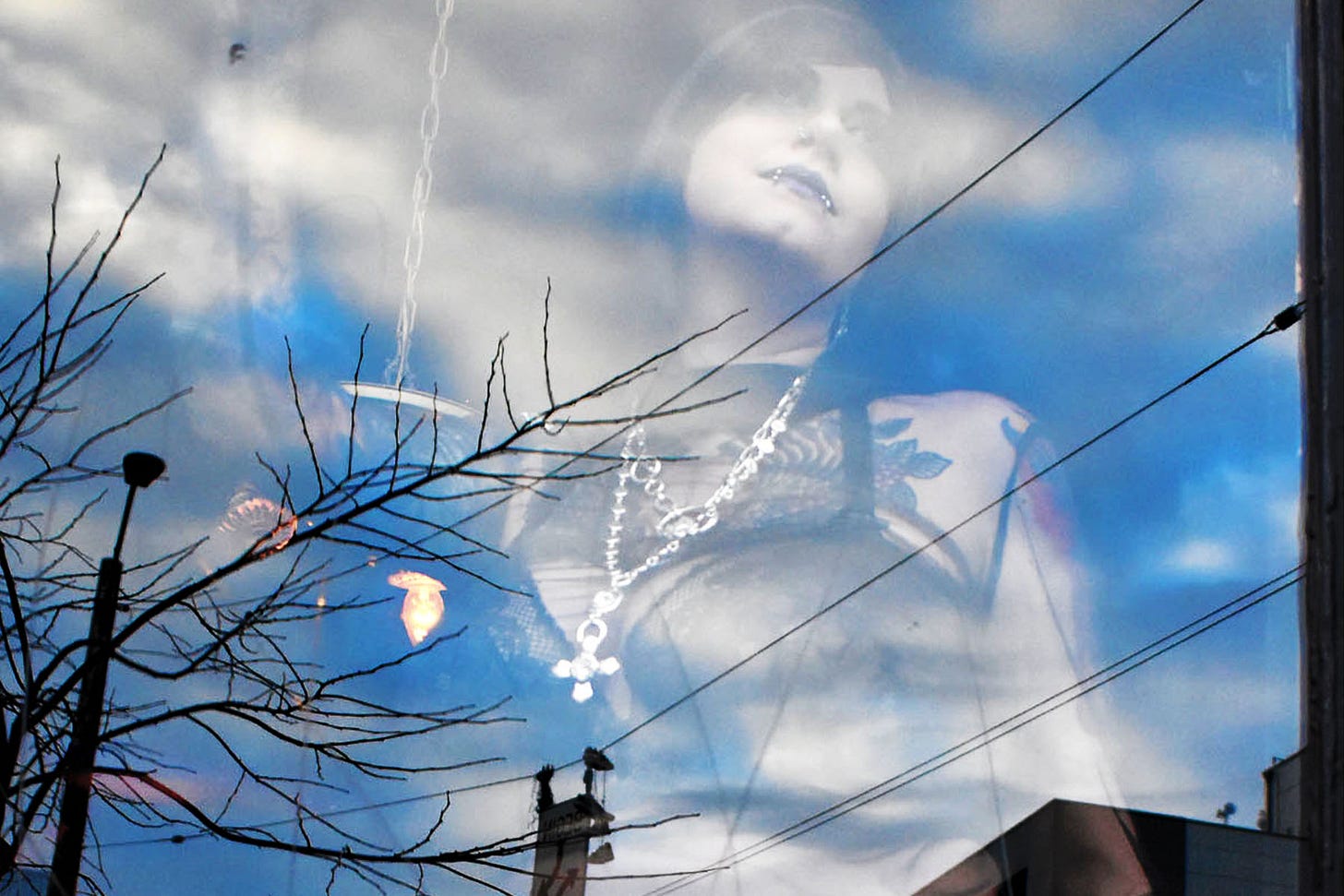
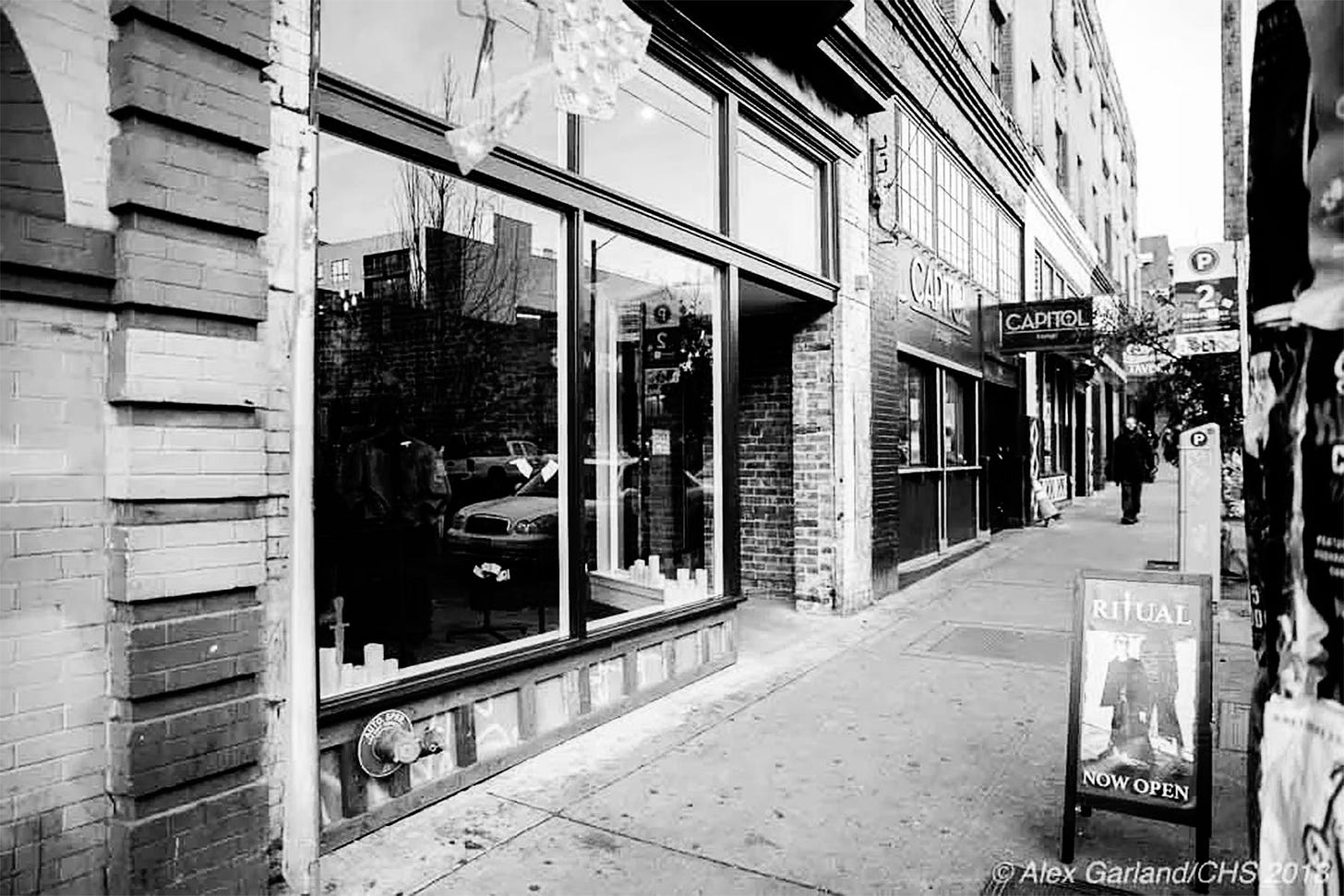
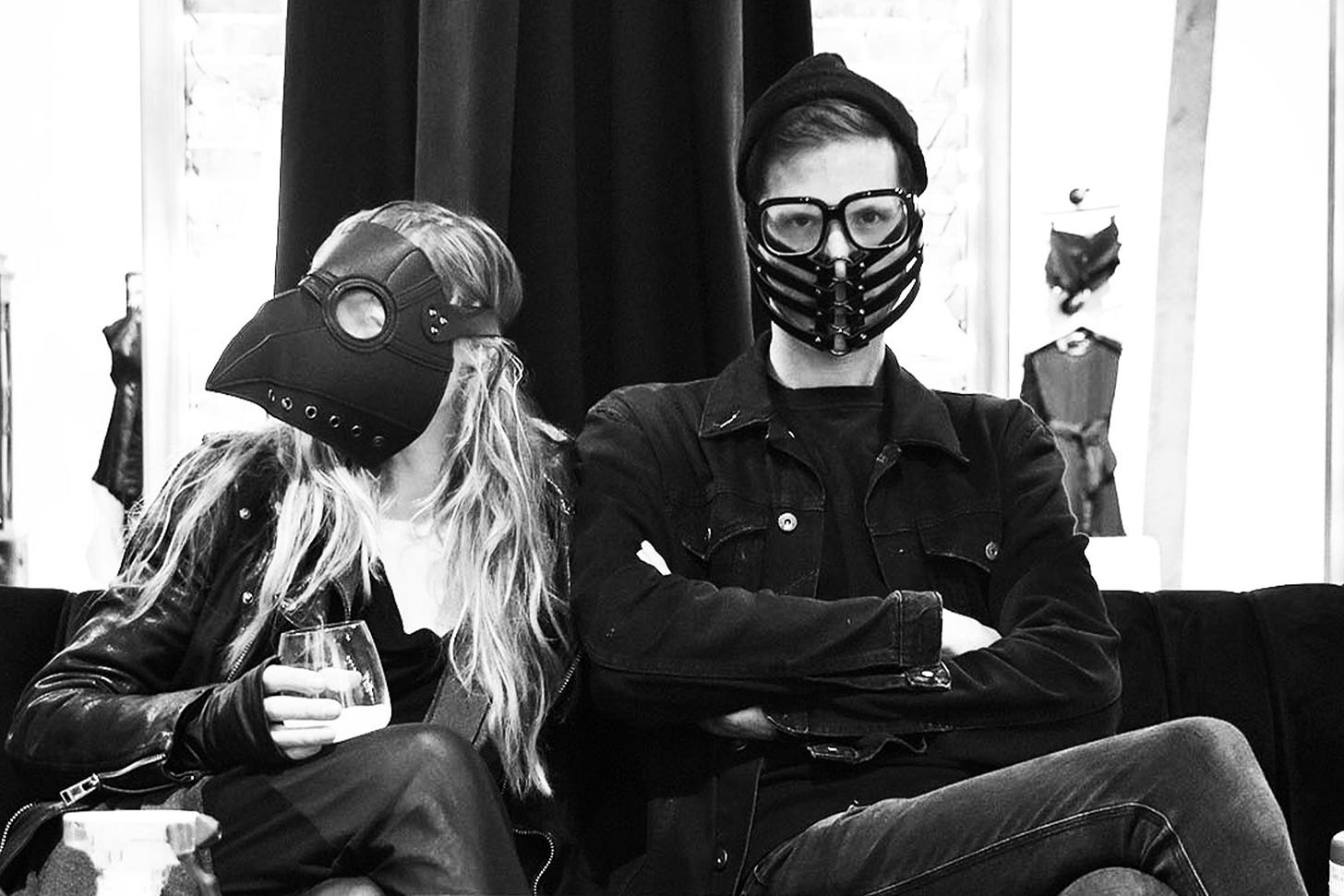
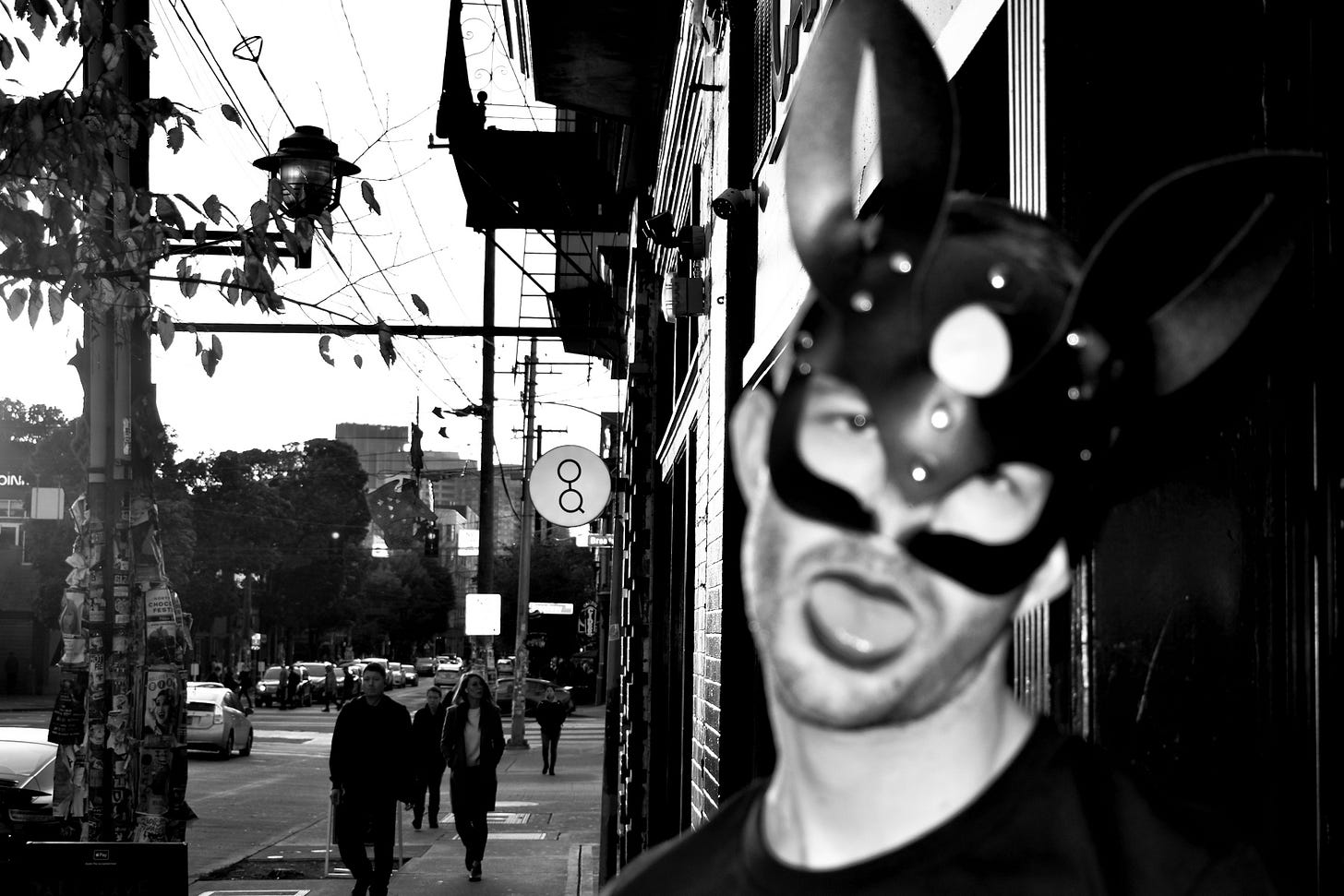
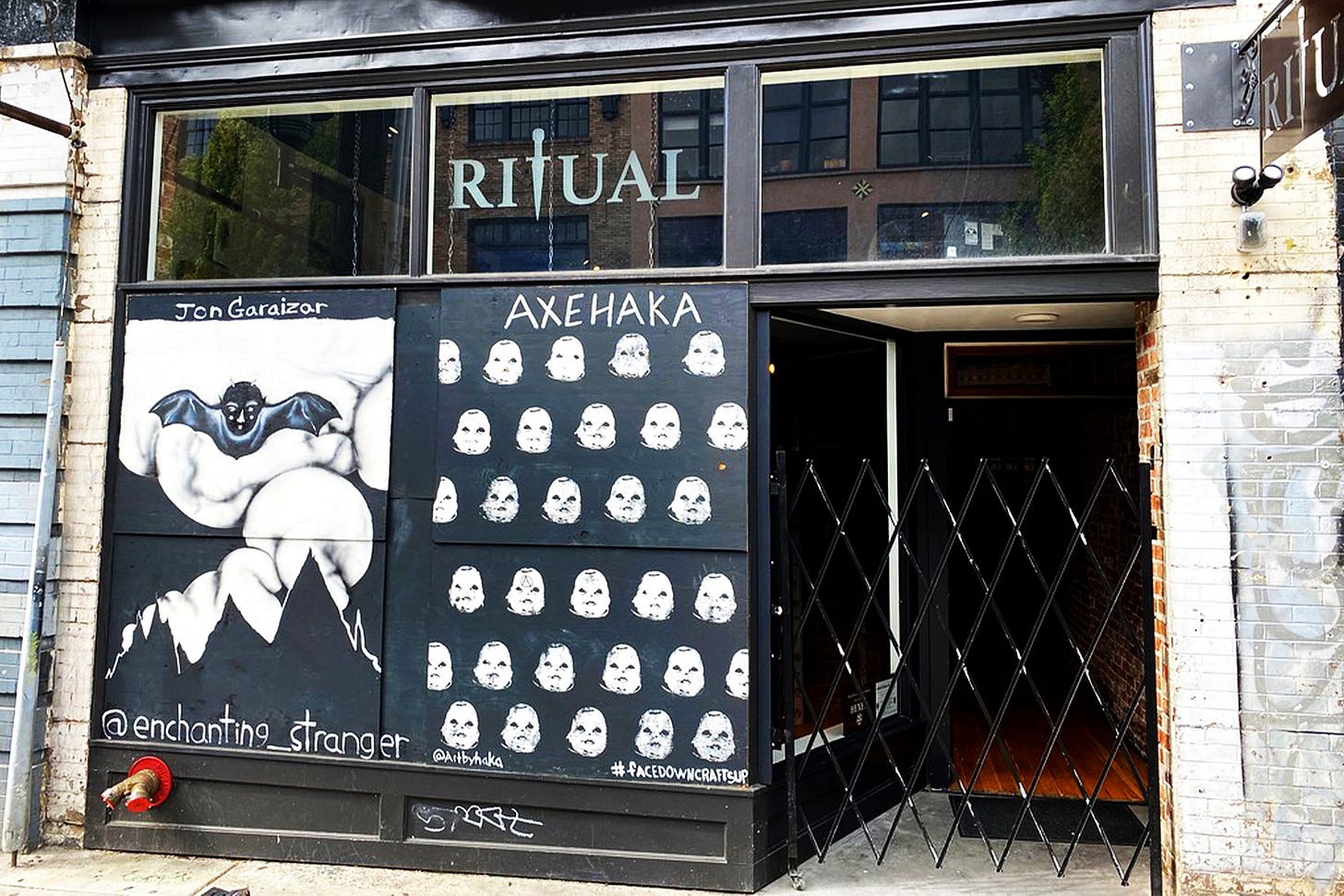

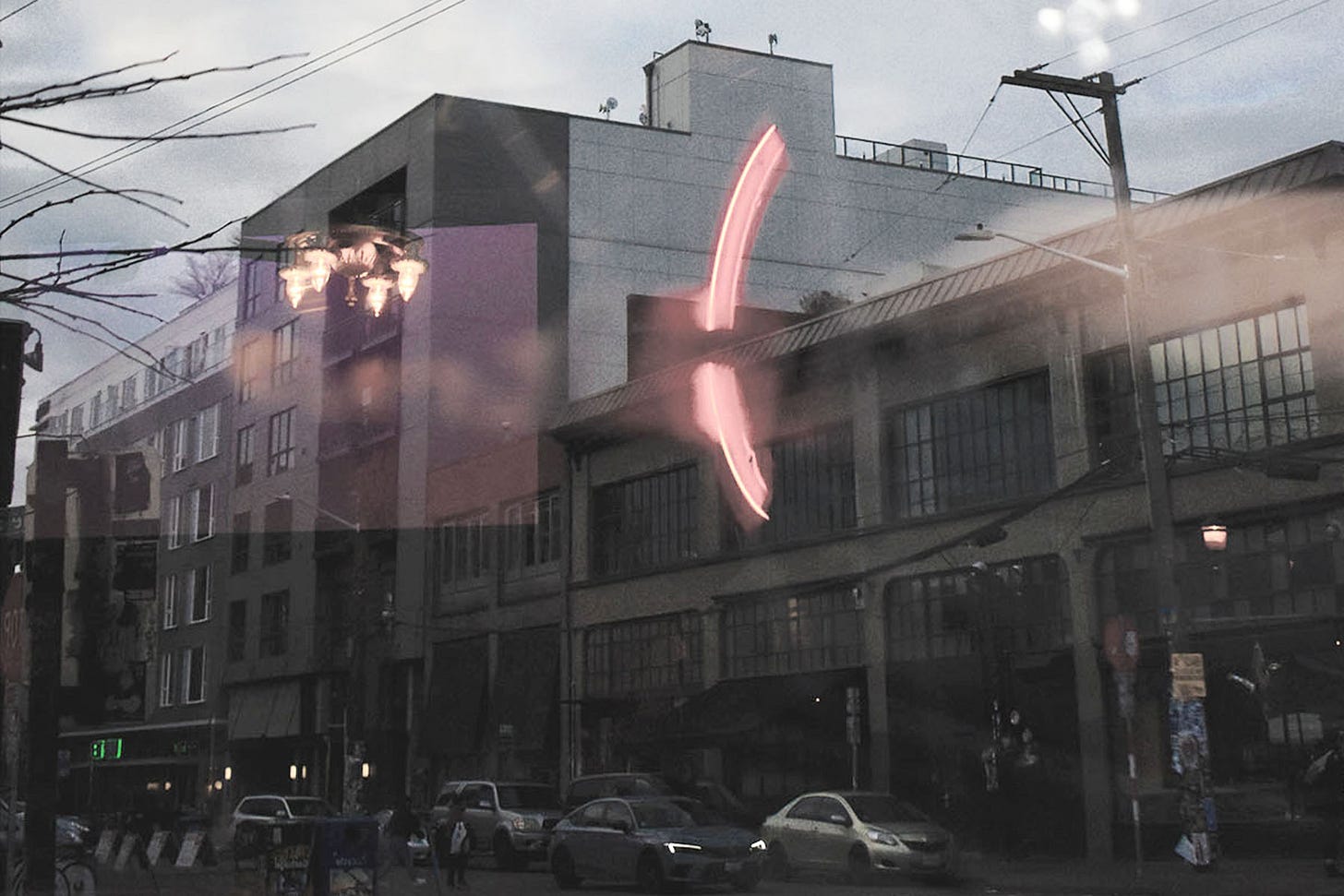
You should write.
Ritual forever 🖤 Thank you for giving us weirdos a place to feel at home. Cheers to a new chapter.